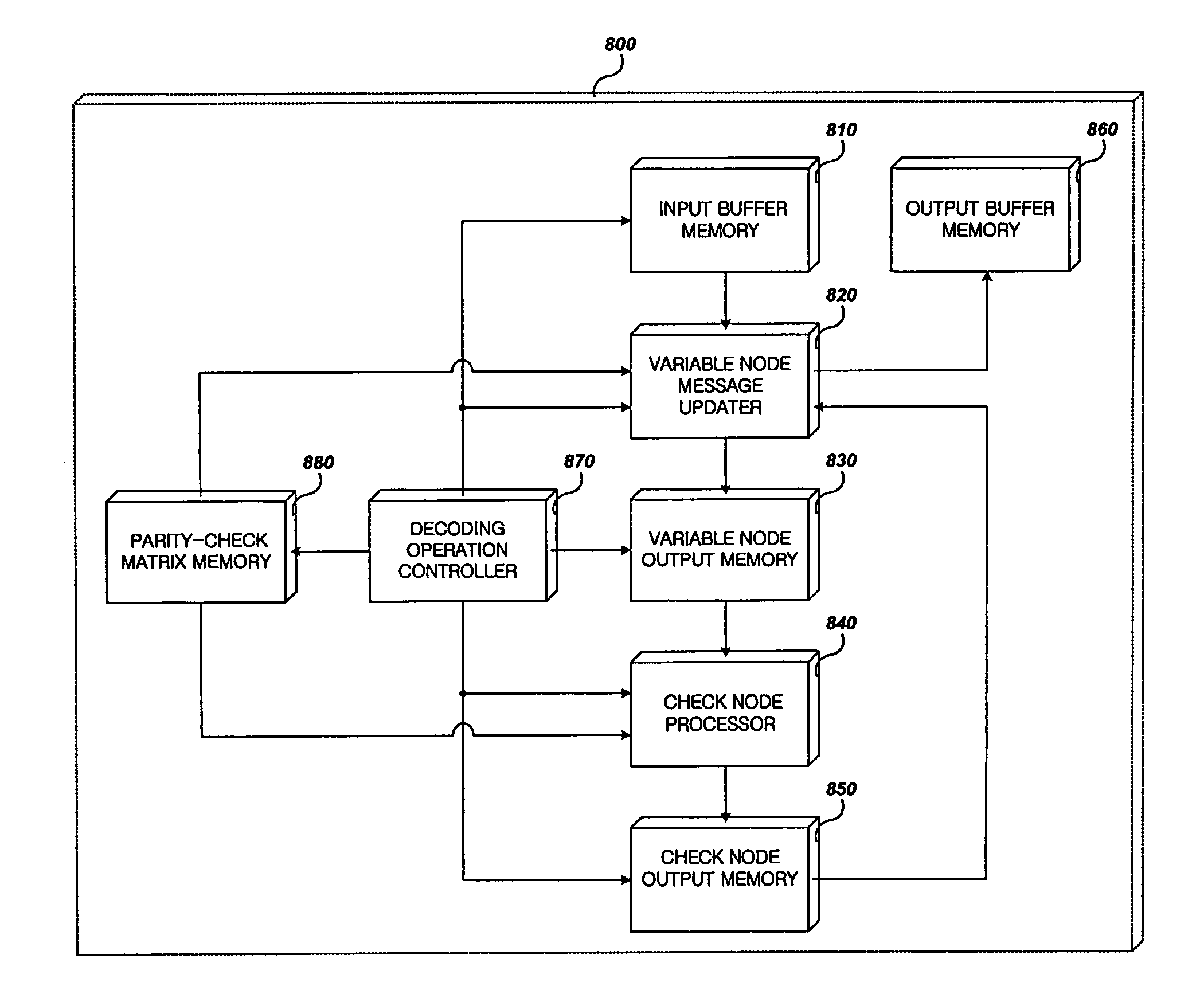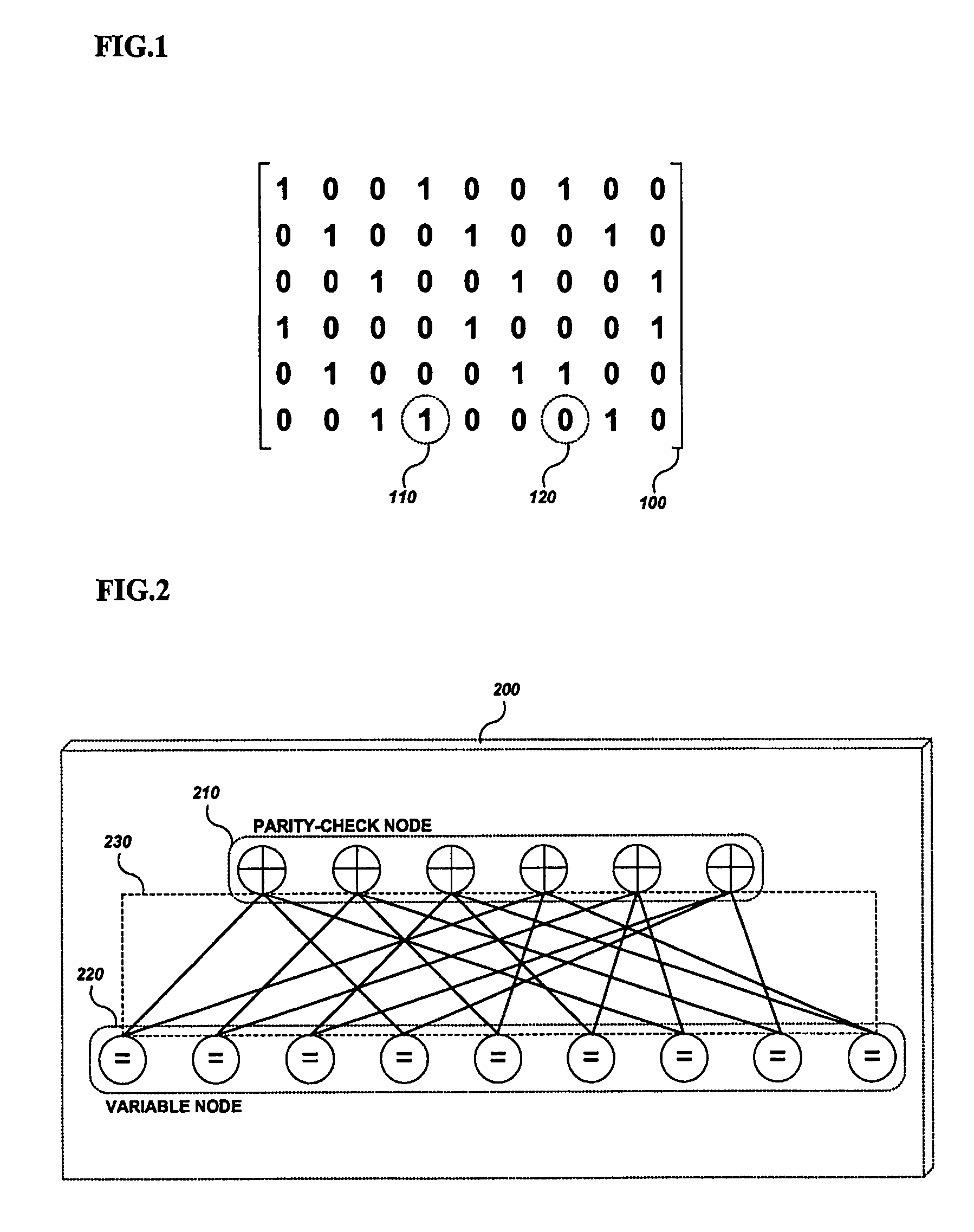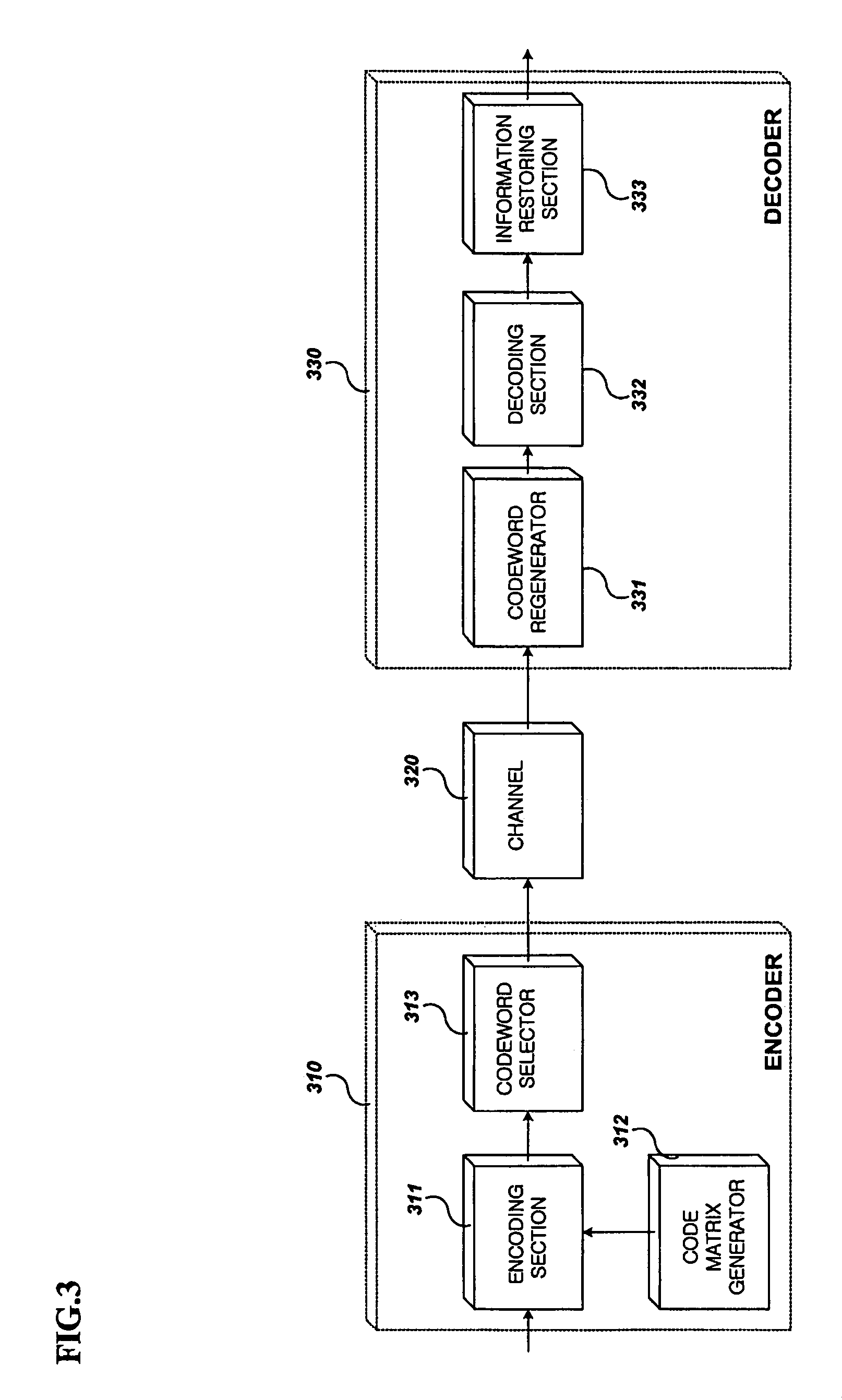Decoding apparatus for low-density parity-check codes using sequential decoding, and method thereof
a decoding apparatus and low-density parity-checking technology, applied in the direction of code conversion, code conversion, instruments, etc., can solve the problems of reducing the average number of decoding iterations, ldpc code almost forgotten, and high implementation costs, so as to improve the decoding convergence rate of sum-product algorithms, reduce the size of the memory necessary, and improve the decoding convergence rate. a high degree of automation
- Summary
- Abstract
- Description
- Claims
- Application Information
AI Technical Summary
Benefits of technology
Problems solved by technology
Method used
Image
Examples
Embodiment Construction
[0050]In the following detailed description, only the preferred embodiment of the invention has been shown and described, simply by way of illustration of the best mode contemplated by the inventor(s) of carrying out the invention. As will be realized, the invention is capable of modification in various obvious respects, all without departing from the invention. Accordingly, the drawings and description are to be regarded as illustrative in nature, and not restrictive. To clarify the present invention, parts which are not described in the specification are omitted, and parts for which similar descriptions are provided have the same reference numerals.
[0051]Hereinafter, a decoding apparatus for LDPC codes using sequential decoding and a method thereof according to an embodiment of the present invention will be described in detail with reference to the accompanying drawings.
[0052]The embodiment of the present invention is directed to a construction method of a message-passing decoding...
PUM
 Login to View More
Login to View More Abstract
Description
Claims
Application Information
 Login to View More
Login to View More - R&D
- Intellectual Property
- Life Sciences
- Materials
- Tech Scout
- Unparalleled Data Quality
- Higher Quality Content
- 60% Fewer Hallucinations
Browse by: Latest US Patents, China's latest patents, Technical Efficacy Thesaurus, Application Domain, Technology Topic, Popular Technical Reports.
© 2025 PatSnap. All rights reserved.Legal|Privacy policy|Modern Slavery Act Transparency Statement|Sitemap|About US| Contact US: help@patsnap.com



